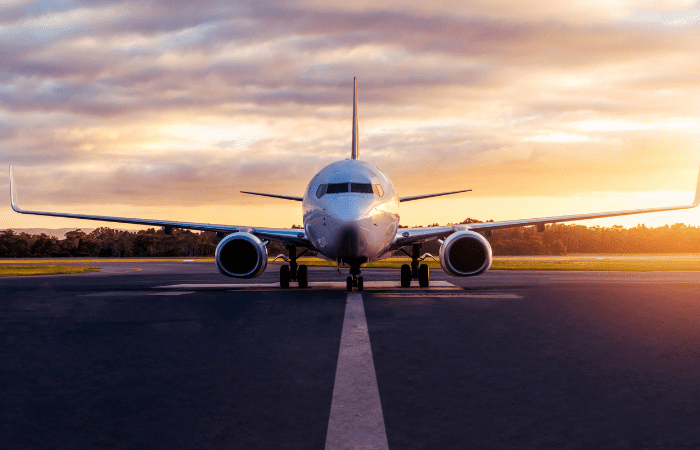
Many young aspirants dream of joining the aviation industry after they clear their class 12 board examination and why not? Aviation Industry is one of the fastest growing and most popular industries in the world and it contributes significantly towards job creation, the global economy, and travel and tourism. In addition, more aspirants can start their careers at a very young age in the aviation sector that helps them to climb the steps to success quickly in life.
Aviation Colleges offer a plethora of popular professional aviation courses that aspirants can pursue to turn their dreams into the reality of reaching the zenith of success in the aviation sector.
The aviation industry suffered a major blow due to the dreadful Covid 19 pandemic. It’s difficult to tell how much the pandemic has devastated the airline industry. But as said, “Every dark cloud has a silver lining’’, the aviation industry is quickly on the road to recovery. According to Mr. Yuvaan Singh Rathore, an aviation enthusiast, “The aviation industry is expecting an optimistic future ahead, but with lots of new modifications.”
Today, let us have a close look at some of the big changes in the aviation industry that may help it to move towards the path of a remarkable future:-
Artificial Intelligence will play a major role in the aviation industry, Artificial Intelligence is intelligence demonstrated by machines, as opposed to the natural intelligence displayed by animals, including humans. Check-Ins before boarding flights will be automated. You just need to scan your passport or other ID to get your boarding pass, though most western countries have this facility. But imagine if you get this facility in all the airports of the world then you don’t have to stand in long queues and wait for your turn increases the chances of catching deadly viruses and falling seriously ill.
You can expect more efficient security check systems at airports. The airports may come up with a scanner where you just need to undergo a fingerprint scan or more commonly known as biometric and the security personnel can pull up if you have any criminal records from the police database. This will help in identifying passengers with the intent to cause harm more quickly.
The flying rules for passengers will be much more stringent keeping in mind the deadly Covid 19 pandemic. It is mandatory to get your complete shots of Covid 19 vaccines along with the Booster dose before you are planning to fly somewhere, especially to international destinations. Additionally, you also need to carry Negative RTPCR test reports.
Airlines will try to reboot business travel to win back business travelers with a revamped business class look with comfortable and spacious seats. Airlines will also offer lenient loyalty programs to business-class passengers. The economy class can also get extra and comfortable sitting arrangements and passengers can expect flexible bookings and discounts. Additionally, the food menus can also get an up-gradation, especially for the business classes.
Artificial Intelligence-based virtual assistance can reduce the workload of the employees of the aviation sector. They can answer the most common questions that the airline customer service agents get such as the status of the flights, and basic queries. The virtual assistants can also perform repetitive work for the pilots and the crew members like reading wind forecasts, and changing radio channels. They can also provide information regarding hotels, cars, etc to passengers.
Artificial Intelligence can also be used to monitor an aircraft. The A. I tools can be used in Air craft Digital systems, Valve Engines, Generators, etc. They can help in predicting maintenance hours, wear and tear and many more. Artificial intelligence can detect mechanical faults and will help in saving hundreds of lives. The dream of a “pilotless plane” may soon turn into reality.
Small and efficient airbus may replace Boeing 747 air crafts and airlines will focus more on reducing greenhouse gas emissions and the use of an alternative, sustainable, and budget-friendly fuel for flights to combat another deadly enemy of humans “Pollution”.
These are some of the major changes that are awaiting the aviation industry in the near future.
 CCPTR,
CCPTR, 

 National Skill Development Corporation
National Skill Development Corporation Ministry of Education
Ministry of Education MoE's Innovation Cell
MoE's Innovation Cell Institution’s Innovation Council
Institution’s Innovation Council AICTE
AICTE


Leave a comment